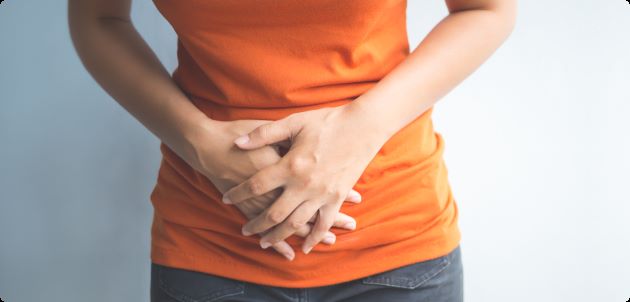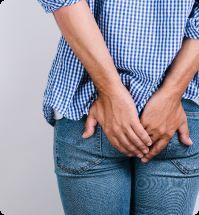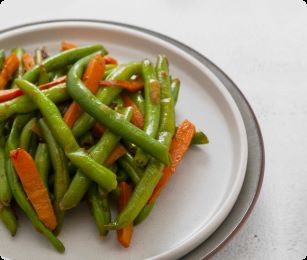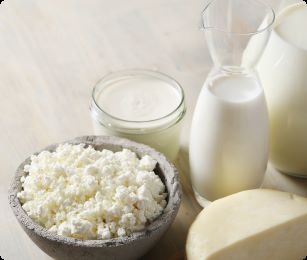Flatulence, or flatulence, is a normal part of digestion. Although it is sometimes a taboo subject, everyone experiences it as a sign that our digestive system is working. During digestion, bacteria in our intestines produce gases such as nitrogen, oxygen and carbon dioxide. Flatulence helps the body get rid of these excess gases.

Although usually harmless, excessive flatulence can indicate digestive problems. This is especially true if it is accompanied by symptoms such as abdominal pain, bloating, or changes in bowel movements. In this blog, we discuss the causes of excessive flatulence and the digestive problems associated with it, so you can better understand when you should consider medical help.
How flatulence happens
Flatulence occurs when bacteria in the intestines break down food, releasing gases such as nitrogen, oxygen, and carbon dioxide. These gases often cause a bubbling belly and flatulence. Flatulence plays an essential role in digestion by helping the body expel excess gases. Although normal, some people may experience flatulence due to specific triggers such as abdominal bloating or flatulence after quitting smoking. If flatulence is accompanied by abdominal pain, flatulence and fatigue, or pain in the right side, it is good to find out the cause of flatulence. There are several ways to do what about flatulence, such as making dietary and lifestyle changes.
Flatulence and common symptoms/ conditions
Flatulence can be a normal part of digestion, but it can also be accompanied by symptoms that indicate other health problems. Common symptoms include abdominal pain and fatigue, which can sometimes indicate underlying conditions. It is important to pay attention to these symptoms and their association with flatulence to better understand possible causes and treatments:


- Flatulence after eating: This can occur with consumption of foods such as beans and cabbage, which produce additional gases during digestion.
- Right side pain and flatulence: May indicate problems such as gallstones or liver disease that affect digestion and gas production.
- Abdominal pain, flatulence and fatigue: May indicate food intolerances or digestive disorders such as irritable bowel syndrome (PDS).
- Flatulence after quitting smoking: Smoking affects the digestive tract, and quitting can temporarily cause changes in digestion and gas production.
- Bloating and flatulence: Can result from gas build-up in the intestines, often as a result of food that is difficult to digest.
- Vomiting: Along with flatulence, may indicate infection or other acute digestive problems.
- Diarrhea: Excessive flatulence with diarrhea may indicate infection, food poisoning, or chronic conditions such as Crohn’s disease.



- Constipation: Gas build-up due to constipation can cause discomfort and flatulence.
- Unintentional weight loss: Can be a sign of serious underlying conditions that affect digestion.
- Stomach acid: Can worsen flatulence by causing stomach contents to rise, causing bloating.
- Blood in the stool: This symptom requires immediate medical attention, as it may indicate serious conditions such as an ulcer or colon cancer.

Although flatulence is usually harmless, some symptoms may indicate more serious health problems. Symptoms such as vomiting, unintentional weight loss, blood in the stool, and right-sided pain associated with flatulence require an urgent visit to a doctor. These may indicate underlying conditions that require immediate medical attention.



What causes flatulence?
Flatulence can be caused by a variety of factors. Here are some common causes:
- Swallowed air (Aerophagia): Swallowing air can accumulate in the intestines and lead to a bubbling belly and flatulence.
- Dietary factors: Certain foods such as beans and carbonated beverages can cause additional gas.
- Lactose intolerance: In people who lack the enzyme lactase, lactose from dairy products is not digested properly, which can cause flatulence.
- Fructose malabsorption: The inability to properly digest fructose can contribute to increased gas production and flatulence.

- Gluten intolerance (Celiac disease): The inability to properly tolerate gluten can lead to flatulence and other digestive problems.
- Bacterial overgrowth in the small intestine (SIBO): This can lead to digestive problems such as right-sided pain and flatulence.
- Irritable bowel syndrome (IBS): This condition can cause abdominal pain, flatulence and fatigue.
- Constipation: An accumulation of gas due to constipation can cause abdominal bloating and flatulence.
- Certain medications: Some medications can contribute to gas build-up and flatulence.
- Hormonal changes: Changes in hormones can affect digestion and cause flatulence.
- Imbalance in the gut microbiome: An unhealthy balance of bacteria in the intestines can contribute to flatulence.
- Flatulence after quitting smoking: Quitting smoking can temporarily unbalance the digestive tract, causing flatulence.
- Diabetes: This can interfere with normal digestion and contribute to flatulence.
If you suffer from flatulence, it is important to understand the cause. This will allow you to take customized measures to reduce symptoms and improve your digestion.
Why do some foods cause more gas formation?
Some foods cause more gas and flatulence because they are harder to digest or high in fiber. Foods such as beans, cabbage and lentils often lead to a bubbling belly and flatulence because they are broken down by bacteria in the intestines, causing extra gas production. Sugars such as fructose, found in apples and honey, can lead to extra gas and abdominal pain in people with fructose malabsorption. Dairy products can cause flatulence in people with lactose intolerance because the enzyme lactase is lacking to properly digest lactose. Carbonated beverages and sugary foods also contribute to abdominal bloating and flatulence. Recognizing these foods and understanding why they cause flatulence can help reduce symptoms such as abdominal pain, flatulence and fatigue. To reduce the burden of flatulence, it is helpful to adjust your diet and avoid what causes flatulence. This can help relieve discomforts such as right side pain and flatulence and promote a healthier digestive system.




What to do about flatulence
If you suffer from flatulence, here are some healthy steps you can take to relieve symptoms and address the cause of flatulence:
- Eat slowly and chew well: This reduces air swallowing and can help prevent bubbling belly and flatulence.
- Avoid foods that cause flatulence: Such as beans, cabbage and sugary foods, which often contribute to bloating and flatulence.
- Drink plenty of water: This helps with digestion and prevents constipation, which can contribute to extra gas and abdominal pain.
- Limit carbonated drinks: These can introduce extra gas into your intestines and worsen flatulence.
- Add probiotics to your diet: They promote healthy intestinal flora and can help reduce flatulence.


- Stay active: Regular exercise promotes digestion and helps digest food, which reduces the chances of stomach pain, flatulence and fatigue.
- Check for food intolerances: Consider dietary testing for lactose intolerance, fructose malabsorption or gluten intolerance, especially if you suffer from flatulence after quitting smoking.
- Try herbs: Such as peppermint or ginger, which can relieve digestive problems and help reduce flatulence.
An effective way to address flatulence is to have your microbiome tested. This test can provide valuable insights into the composition of your gut flora and help identify any imbalances. Based on the test results, you will also receive customized nutritional advice so you can take immediate, targeted measures to improve your gut health. As a result, you know exactly where you stand and can take action to effectively reduce flatulence and optimize your overall digestive health.
If, despite these measures, you experience persistent or severe symptoms, such as right-sided pain combined with flatulence, unintentional weight loss, blood in the stool, or if flatulence is accompanied by other severe symptoms such as abdominal pain, flatulence and fatigue, it is important to contact your doctor. A medical professional can determine the underlying cause of your flatulence and suggest appropriate treatment to improve your well-being.

Conclusion
Flatulence is a normal part of your digestive system, but excessive or painful flatulence can indicate health problems. By understanding the causes and symptoms, you can identify triggers and reduce discomfort. Adjust your diet, exercise regularly and consider having your microbiome tested to alleviate symptoms. For severe symptoms such as right-sided pain, weight loss or blood in stool, seek timely medical attention. Stay alert to changes in your health and seek professional advice if needed to maintain a healthy digestive system.









